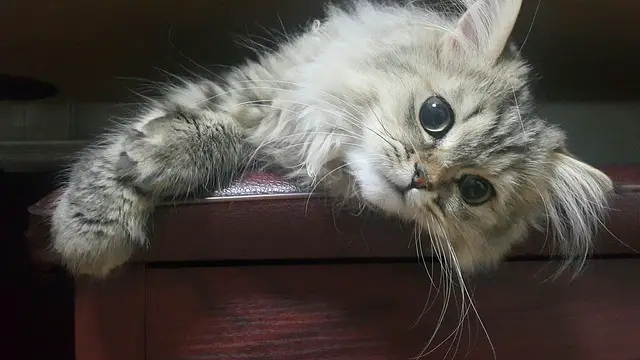Persian cats are a popular breed known for their long, luxurious coats and sweet temperaments. As with any pet, providing them with proper nutrition is essential to keep them healthy and happy. One question that often arises is whether or not it’s safe to give milk to Persian cats.
While it’s true that cats, in general, are known for their love of milk, the reality is that many cats are actually lactose intolerant. This means they don’t have the necessary enzymes to break down lactose, a sugar found in milk. As a result, consuming milk can lead to digestive upset, including diarrhea and vomiting. So, the question remains: can Persian cats safely consume milk?
The answer is not a straightforward yes or no. While some Persian cats may be able to tolerate small amounts of milk without issue, others may experience digestive upset.
It’s important to remember that milk should never be the primary source of nutrition for cats, as it lacks many essential nutrients they need to thrive.
Persian Cats and Milk
The Debate Over Milk for Cats
There has been a long-standing debate over whether or not cats should be given milk. While cats are known to love milk, it is essential to note that not all cats can digest lactose properly. Lactose is a sugar in milk that can cause digestive upset, including diarrhea and vomiting, in lactose-intolerant cats. This is especially true for adult cats, as they typically lose the ability to digest lactose as they age.
The Nutritional Value of Milk for Cats
Milk is a good source of calcium and protein, essential cat nutrients. However, many other sources of these nutrients are better suited for cats, such as commercial cat food. In addition, many commercial cat foods are formulated to provide all the necessary nutrients that cats need, including calcium and protein. Therefore, giving cats milk is unnecessary to meet their nutritional needs.
The Risks of Giving Milk to Persian Cats
Persian cats are known for their sensitive stomachs; giving them milk can be risky. In addition, Persian cats are more likely to be lactose intolerant than other breeds, meaning they are more likely to experience digestive upset after consuming milk.
In addition, Persian cats are prone to developing urinary tract problems, and giving them milk can exacerbate these issues.
Therefore, it is generally not recommended to give milk to Persian cats. In summary, while milk can provide some nutritional benefits for cats, it is unnecessary to give them milk to meet their nutritional needs.
Additionally, giving milk to Persian cats can be risky and may cause digestive upset or exacerbate existing health issues. Therefore, it is always best to consult a veterinarian before changing your cat’s diet.
Alternatives to Milk for Persian Cats
Water
Water is the most critical nutrient for cats. It is essential for maintaining a healthy body and preventing dehydration. Persian cats, like all cats, should always have access to clean, fresh water. In addition, it is recommended to use a water fountain to encourage cats to drink more water.
Cat Milk
Cat milk is a popular alternative to cow’s milk for cats. It is specially formulated to meet the nutritional needs of cats and is easier to digest than cow’s milk. However, not all cats can tolerate cat milk, which should be used in moderation. Some cats may also develop digestive issues, such as diarrhea if they consume too much cat milk.
Other Dairy Products
While cats are lactose intolerant and should not consume regular cow’s milk, some dairy products can be used in moderation. These include small amounts of cheese, yogurt, and cottage cheese. However, it is essential to choose dairy products that are low in lactose and do not contain any additives or sweeteners that could harm cats.
It is important to note that while dairy products can be given to cats in moderation, they should not be a regular part of their diet. Cats require a balanced diet high in protein and low in carbohydrates. In addition, too much dairy can lead to weight gain, digestive issues, and other health problems.
Conclusion
Based on the research conducted, it is clear that Persian cats can consume milk, but it is not recommended. While some cats may be able to tolerate milk without any issues, many may experience digestive problems such as diarrhea, vomiting, and upset stomachs.
It is important to note that cats are lactose intolerant, meaning they lack the enzyme necessary to break down lactose, the sugar in milk. This can lead to discomfort and other health issues. Additionally, milk is not an essential part of a cat’s diet as it can get all the nutrients they need from its regular food.
If you give your Persian cat milk, it is recommended to do so in small quantities and as an occasional treat rather than a regular part of their diet. Choosing low-lactose or lactose-free options such as lactose-free milk or specially formulated cat milk is also essential.
[su_box title=”Affiliate Disclosure”]This website is supported by its readers. Please assume that all links are affiliate links. If you make a purchase from one of the links we will make a commission from Amazon. Thank you.[/su_box]




